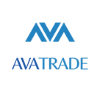Our ranking of platforms for arbitrage trading identifies the most suitable brokers to take advantage of price discrepancies in different markets. These platforms excel in providing real-time data, fast execution, and the necessary tools for effective arbitrage strategies.
BEST FUTURES BROKERS IN CANADA
The ranking of Best Futures Brokers in Canada reviews margin policies, spreads, order execution speed, product variety across indices, commodities, and currencies, as well as platform reliability and educational resources, ensuring that Canadian investors engaging in futures markets can access advanced strategies with confidence and tools built for professional use.

Ranking Methodology
To compile the ranking, we rely on a professional criterion that follows these steps:
We test the platforms based on several basic parameters (see list).
We test the platforms based on ranking-specific parameters.
We ensure the results are accurate (consistency and absence of outliers).
We verify on social media and forums that our parameters are socially sound and that no relevant negative reviews exist.
We present and publish the ranking.
Basic Testing Parameters for Apps Included in the Ranking
They allow accounts to be opened by local clients; meaning we exclude platforms not available in certain countries.
Regulatory compliance and security.
Transparency, reputation, and data protection.
Total costs (commissions, spreads, non-trading fees, deposits/withdrawals).
User experience (UX/UI), stability, and performance (uptime, latency).
Platform and tools (charts, alerts, backtesting, mobile, desktop, API).
Execution and liquidity (order quality, slippage, depth).
Customer support (languages, coverage, response times).
Education and resources (guides, research, demos, simulators).
Specific Parameters for the Futures Ranking
Access to futures contracts on recognised exchanges (CME, ICE, Eurex, etc.).
Coverage of futures on indices, commodities, currencies, and interest rates.
Margin requirements and leverage available (levels, flexibility, margin calls).
Specific trading costs in futures (spreads, exchange fees, rollover).
Execution quality and market depth (volume, liquidity, slippage).
Availability of advanced orders (stop, OCO, trailing stop, bracket orders).
Risk management tools specific to futures (margin analysis, volatility scenarios).
Access to historical data and backtesting for futures strategies.
How to open an Investment Account
Once you’ve selected a provider from our ranking, opening your investment account in Canada is straightforward. The process is similar for stocks, bonds, ETFs, futures, indices, options, commodities, cryptocurrencies or real estate.
Go to the official website: Click “Open account” or “Get started”.
Complete the registration form: Provide your name, email, phone and country. You’ll need government-issued ID (passport or driver’s licence) and proof of address, such as a Hydro-Québec electricity bill or a bank statement from the last 3 months.
Await approval: Some accounts are approved instantly, others within a few days.
Set preferences: Once approved, configure your risk limits and trading settings.
Fund your account: Deposit by card, bank transfer or e-wallet.
And you’re ready to invest.
YOU MAY ALSO BE INTERESTED








